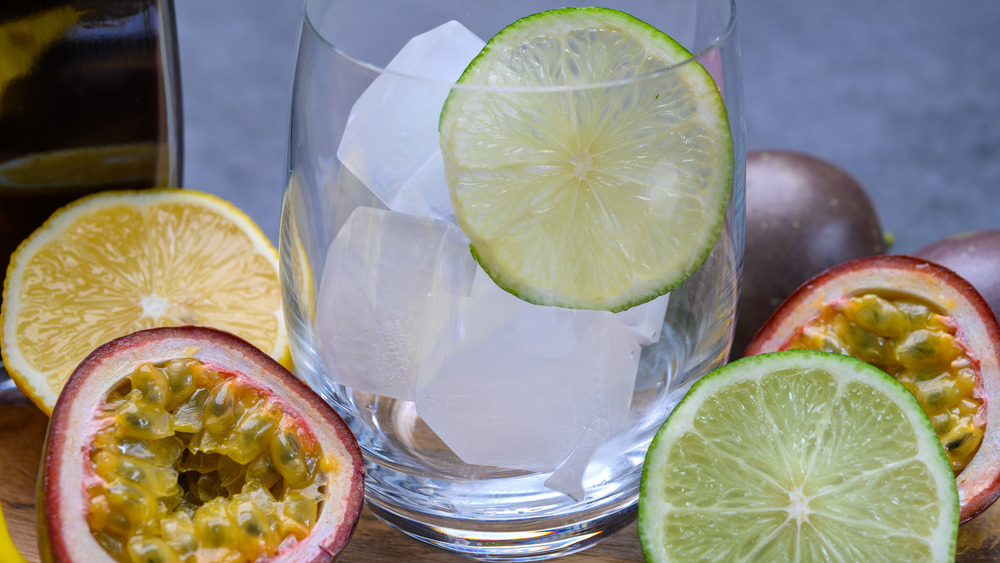Why You Should Think Twice About Drinking Alcohol If You're Low-Carb
Unfortunately, going low-carb means cutting out a lot of common favorite foods — and drinks. As if giving up pizza and french fries wasn't tough enough, if you're serious about a low-carb lifestyle, you're also going to have to largely nix alcohol from your diet. You can still enjoy the occasional drink, but most options are going to cut into your carb allotment for the day.
While alcohol itself isn't a carbohydrate, many alcoholic beverages contain carbs. Drinks that are sugar-laden — margaritas, pina coladas, anything mixed with juice or soda, and beer — are all in the high-carbohydrate category. Light beers and wine will contain carbohydrates, though in varying quantities. Pure alcohols, though, like whiskey, tequila, vodka, and gin are all carb-free (via Healthline). If it tastes sweet, it's likely packed with carbs. Stick to straight alcohol with calorie-free mixers like seltzer rather than opting for mixed drinks, and check sugar content on wine before drinking, especially if you're on a strict low-carb diet like keto.
If alcohol is low-carb, why skip it?
If you're sticking to a keto diet — going extremely low-carb at under 50 grams of carbohydrate per day — you may want to reconsider drinking altogether. While you could sip a scotch and seltzer and not add to your carb intake, alcohol will slow your rate of ketosis. And if you do sip one too many cocktails, you may start to lose willpower to resist the allure of a late-night order of fries (via Insider).
The hangover you might feel on a low-carb diet or keto diet after a night of drinking may be much more intense as well. Because you're more likely to end up dehydrated and with imbalanced electrolytes, expect a worse headache and all the other negative side effects of one too many tequila shots (via Perfect Keto).
As with anything, moderation is key: Drinking alcohol in excess can lead to weight gain as well as a cascade of other negative health consequences. If you decide to keep booze in your low-carb lifestyle, do so moderately (via Healthline).


